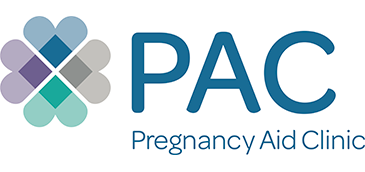You may have heard of a condition called an ectopic pregnancy. There has been a lot of confusion regarding ectopic pregnancies, especially regarding the new abortion laws. So, we’re breaking down several of the frequently asked questions about ectopic pregnancy and what you need to know.
What is an Ectopic Pregnancy?
An ectopic pregnancy, also known as a tubal pregnancy, occurs when the fertilized egg implants itself somewhere other than the uterus. This implementation usually happens in the fallopian tubes which causes the fertilized egg not to develop normally. An ectopic pregnancy can be dangerous to the mother and if it goes undetected, the embryo can continue to grow, causing the fallopian tube to burst. This puts the mother’s life in danger. Intervention is necessary in this case.
Is treatment for an Ectopic Pregnancy considered an abortion?
Medical intervention in the case of an ectopic pregnancy is not considered an abortion. Therefore, the laws restricting abortions do not apply to ectopic pregnancies. If you or someone you know is diagnosed with an ectopic pregnancy, help is available. It does not matter where you live. Treatment for ectopic pregnancy is legal and available in every state.
What are the symptoms of an Ectopic Pregnancy?
At first, an ectopic pregnancy can cause the same symptoms as a regular pregnancy. These include a missed period, nausea, mood swings, and a positive pregnancy test. There most likely won’t be any external signs of the ectopic pregnancy until the embryo starts to grow.
That’s why an early detection ultrasound is so important. With an ultrasound a medical professional can see where the embryo is implanted to rule out ectopic pregnancy concerns. Pelvic pain and light vaginal bleeding will likely be the first noticeable indicators of an ectopic pregnancy.
There are also more serious symptoms that may signal that the fallopian tube is beginning to rupture. Call your doctor or 911, or go to the emergency room right away if you experience any of the following symptoms:
-
-
-
-
- vaginal bleeding
- extreme dizziness
- gush/flow of watery fluid from vagina
- blurred vision/spots before eyes
- marked swelling in upper or lower extremities or face
- difficulty breathing
- severe headache
- temperature over 100.4 F
- other serious symptoms
- severe stomach pain/cramping
- severe vomiting
- chest pain
- abdominal/pelvic pain
- painful urination
-
-
-
How is an Ectopic Pregnancy Diagnosed?
What about sexually transmitted diseases or infections? How do they correlate with Ectopic Pregnancies?
Studies suggest that certain sexually transmitted diseases or infections, such as Chlamydia, could increase the chance of an ectopic pregnancy due to the production of a particular protein that is caused by the STD or STI. See source linked below for more information.
Does Ectopic Pregnancy affect future pregnancies?
Research suggests that many women who experience an ectopic pregnancy go on to have healthy pregnancies in the future. Even if a fallopian tube is injured or removed due to an ectopic pregnancy, the female body is made with two fallopian tubes, so an egg can still join with a sperm in the other tube and travel to the uterus successfully. See source linked below for more information.
Whether you think you may be facing an ectopic pregnancy or not, having an ultrasound to medically verify your pregnancy is vital to your health. Searching for ectopic pregnancy help online will only get you so far. If you’re looking for a local pregnancy clinic or resources here in Starkville or surrounding areas, we’re here for you. Visit us today for a free ultrasound and medical verification of pregnancy.

